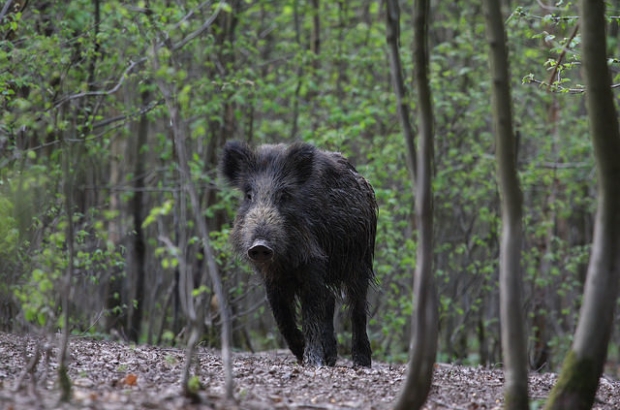- Daily & Weekly newsletters
- Buy & download The Bulletin
- Comment on our articles
Brussels Environment to take action against wild boar in Woluwe
Authorities in Woluwe-Saint-Pierre have given the go-ahead to Brussels Environment to act quickly if necessary against a wild boar seen several times in Woluwe Park, indeed nearly every day for more than a year.
This follows a warning from Montgomery zone police that with boar seen in the commune, residents should avoid wooded areas.
“The wild boar is not a dangerous animal, but we must be careful,” the police said on its Facebook page. Brussels Environment added that the boar’s reactions “remain unpredictable and so be careful, if upset it could charge”.
Mayor Benoît Cerexhe’s decree allows the capital’s environmental organisation to respond quickly, without the need for permission under a standard decree.
“The almost daily presence of this animal in the park, first seen on 1 April, represents a risk we cannot ignore,” he said, even though the boar can in no circumstances be hurt or killed, as that would be illegal.
A wild boar was even seen on Rue Voot in neighbouring Woluwe-Saint-Lambert on 29 May, causing the mayor to say that even if the animal is quite fearful and will aim to avoid contact with humans and run away from them, “we must not end up with a situation where it becomes scared and defensive, putting the safety of walkers and their dogs at risk”.
At this stage, no firm decisions have been taken, said Pascale Hourman, spokeswoman for Brussels Environment. The matter is complicated as the animal has protected status.
“Ideally, the animal should be moved to a more suitable area," she said. "Currently, the animal shows no signs of aggression. Euthanasia is the last option to consider, and this only if the boar poses a threat to public safety, which is absolutely not the case at the moment.”
She added that specific measures were needed to capture the animals safely such as a cage or net.
For his part, Benoît Cerexhe added: “Euthanising the wild boar is totally out of the question. My order clearly states that the animal must be put to sleep and returned to a suitable natural environment, for example to a forest outside the capital” - and not the Sonian Forest, where it is likely to have come from.
“This is a delicate operation that requires a whole series of measures, not only for the safety of the people of Brussels, but also for vehicle traffic,” he said.
Up until now, only one boar has been spotted, and Brussels Environment said that the animal could return on its own to a hunting territory that suits it better as they can travel up to 12km a night.
But in the last month alone, the group’s experts have already noticed a change in its behaviour. The wild boar is less fearful and no longer systematically flees from human presence.
The administration is therefore urging walkers and residents to behave appropriately.
“Put your dog on a lead, and if you encounter a wild boar, remain calm and keep your distance," said Hourman. "Above all, do not use sticks or other objects to chase a wild boar. Finally, do not feed it under any circumstances, as this could cause a change in its behaviour."
Brussels Environment is carrying out a survey to map out the places wild boar prefer to go. “This will allow us to make an analysis and choose the best approach,” she added.


















